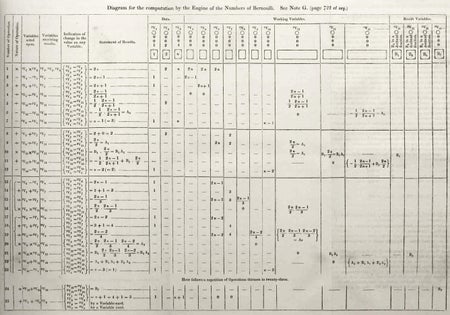
Ada Lovelace’s Endnotes Foretold the Future of Computation
Ada Lovelace’s wisdom about the first general-purpose computer can be found buried in the appendix of another paper
Jack Murtagh writes about math and puzzles, including a series on mathematical curiosities at Scientific American and a weekly puzzle column at Gizmodo. He holds a Ph.D. in theoretical computer science from Harvard University. Follow Murtagh on X @JackPMurtagh

Ada Lovelace’s Endnotes Foretold the Future of Computation
Ada Lovelace’s wisdom about the first general-purpose computer can be found buried in the appendix of another paper

How the Guinness Brewery Invented the Most Important Statistical Method in Science
The most common test of statistical significance originated from the Guinness brewery. Here’s how it works
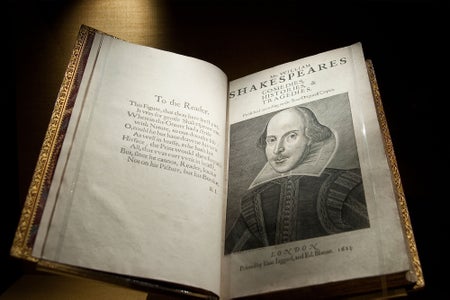
Do the Digits of Pi Actually Contain All of Shakespeare?
If pi is a “normal” number, the constant would contain much more than Shakespeare, resolving why such a random-looking number lives at the heart of simple circles

How a Classic Bridge-Crossing Puzzle Inspired New Math
Are you smarter than an 18th-century Prussian?

The Strangely Serious Implications of Math’s ‘Ham Sandwich Theorem’
A simple solution to gerrymandering crumbles when confronted with math’s “ham sandwich theorem”
This Nomadic Eccentric Was the Most Prolific Mathematician in History
The bizarre life and legacy of Paul Erdős, the most prolific mathematician ever
Math Explains Why Your Friends Are More Popular Than You
The inspection paradox makes sense of social networks, long train wait times and why the call center is always busy
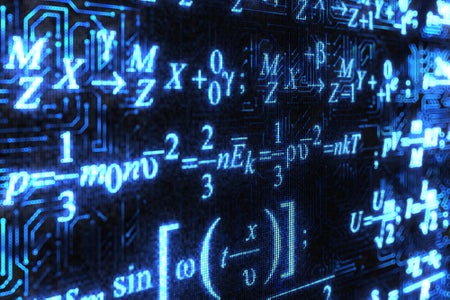
The Most Important Unsolved Problem in Computer Science
Here’s a look at the $1-million math problem at the heart of computation
Is the Lottery Ever a Good Bet?
The surprisingly subtle math behind the Powerball and Mega Millions
Could Math Design the Perfect Electoral System?
Graphics reveal the intricate math behind ranked choice voting and how to design the best electoral system, sometimes with bizarre outcomes
A Married Bachelor Proves That Unicorns Exist
The “principle of explosion” explains why a single contradiction would destroy math
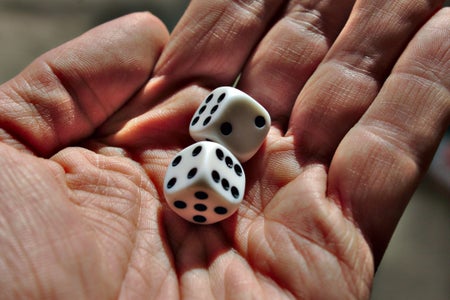
How Warren Buffett Rigged a Dice Game with Bill Gates
Weird math can explain why Warren Buffett had the advantage in a dice game against Bill Gates
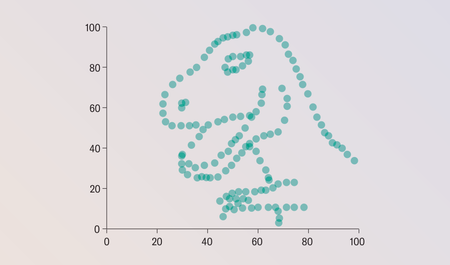
What This Graph of a Dinosaur Can Teach Us about Doing Better Science
“Anscombe’s quartet” and the “datasaurus dozen” demonstrate the importance of visualizing data
Math’s ‘Hairy Ball Theorem’ Has Surprising Implications
Here’s what the hairiest problem in math can teach us about wind, antennas and nuclear fusion
The Gambling Strategy That’s Guaranteed to Make Money and Why You Should Never Use It
The martingale betting strategy has led many gamblers to ruin when the Kelly criterion could have brought them riches
How a Doodler’s Problem Sparked a Controversy in Math
The twisty history and surprise ending of the four-color theorem saga
Where’s Waldo? How to Mathematically Prove You Found Him without Revealing Where He Is
Zero-knowledge proofs allow mathematicians to prove claims without explaining why they’re true
The SAT Problem That Everybody Got Wrong
The coin rotation paradox flummoxed SAT test writers even though we encounter this math problem every day
What Is Benford’s Law? Why This Unexpected Pattern of Numbers Is Everywhere
A curious mathematical phenomenon called Benford’s law governs the numbers all around us